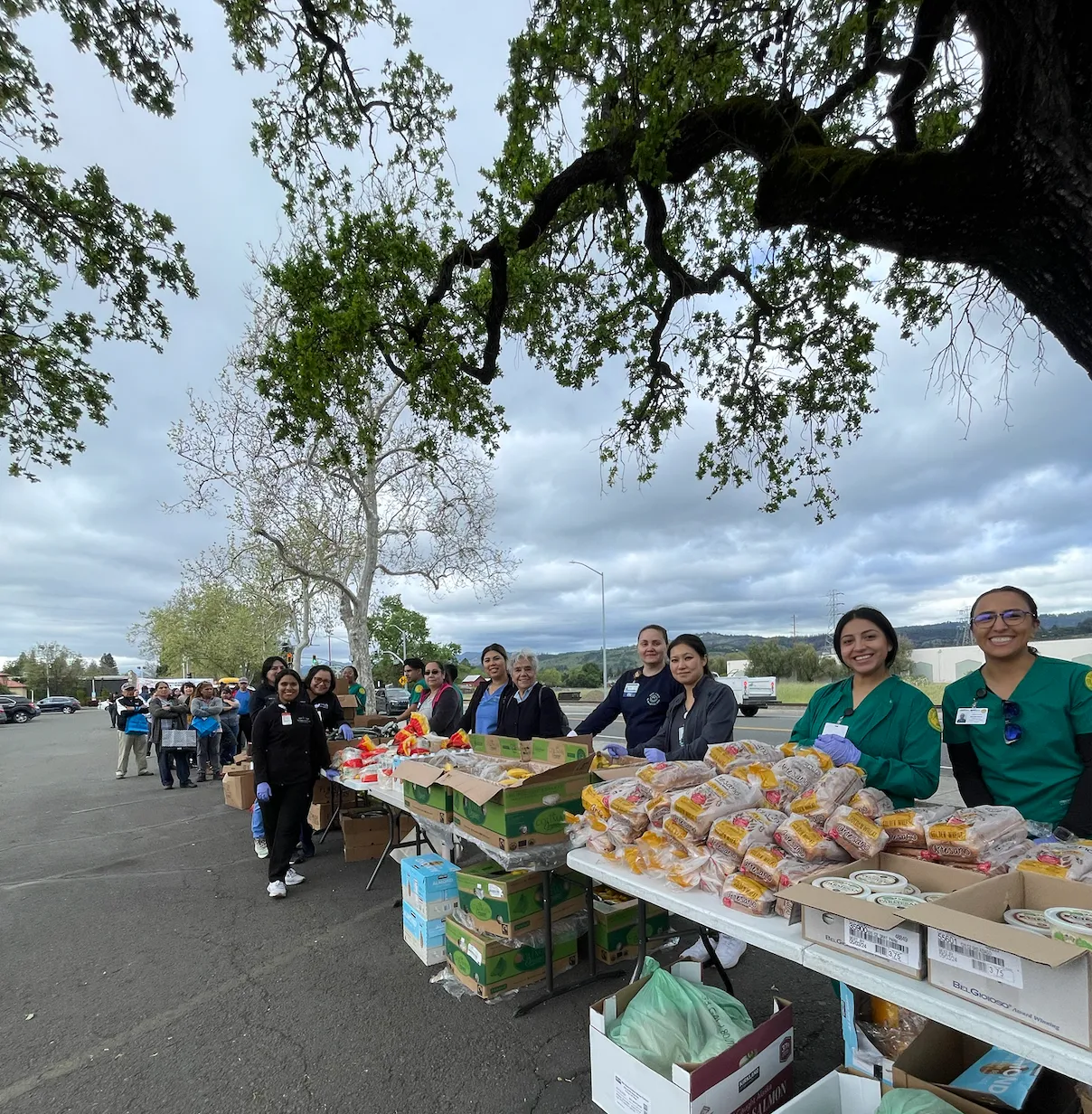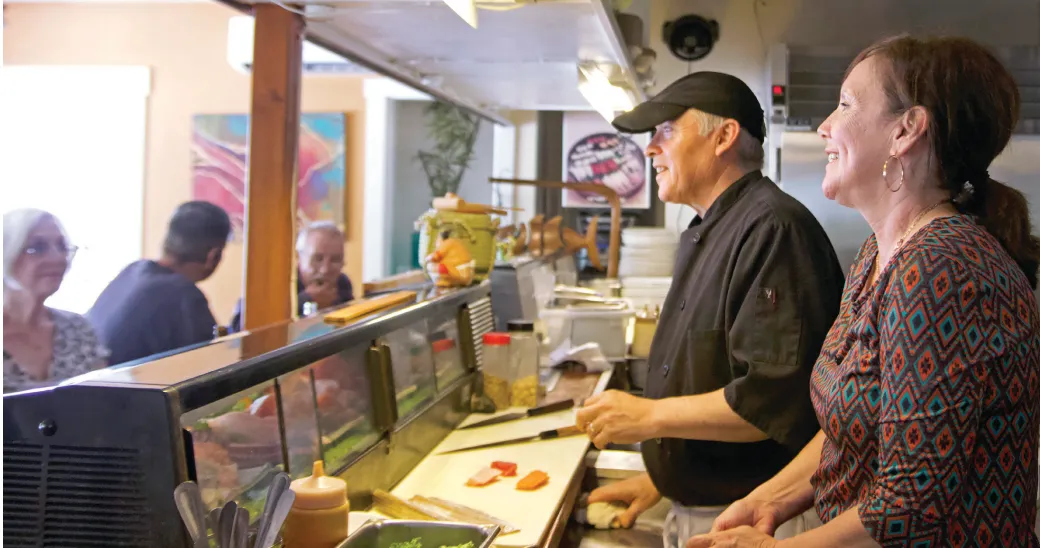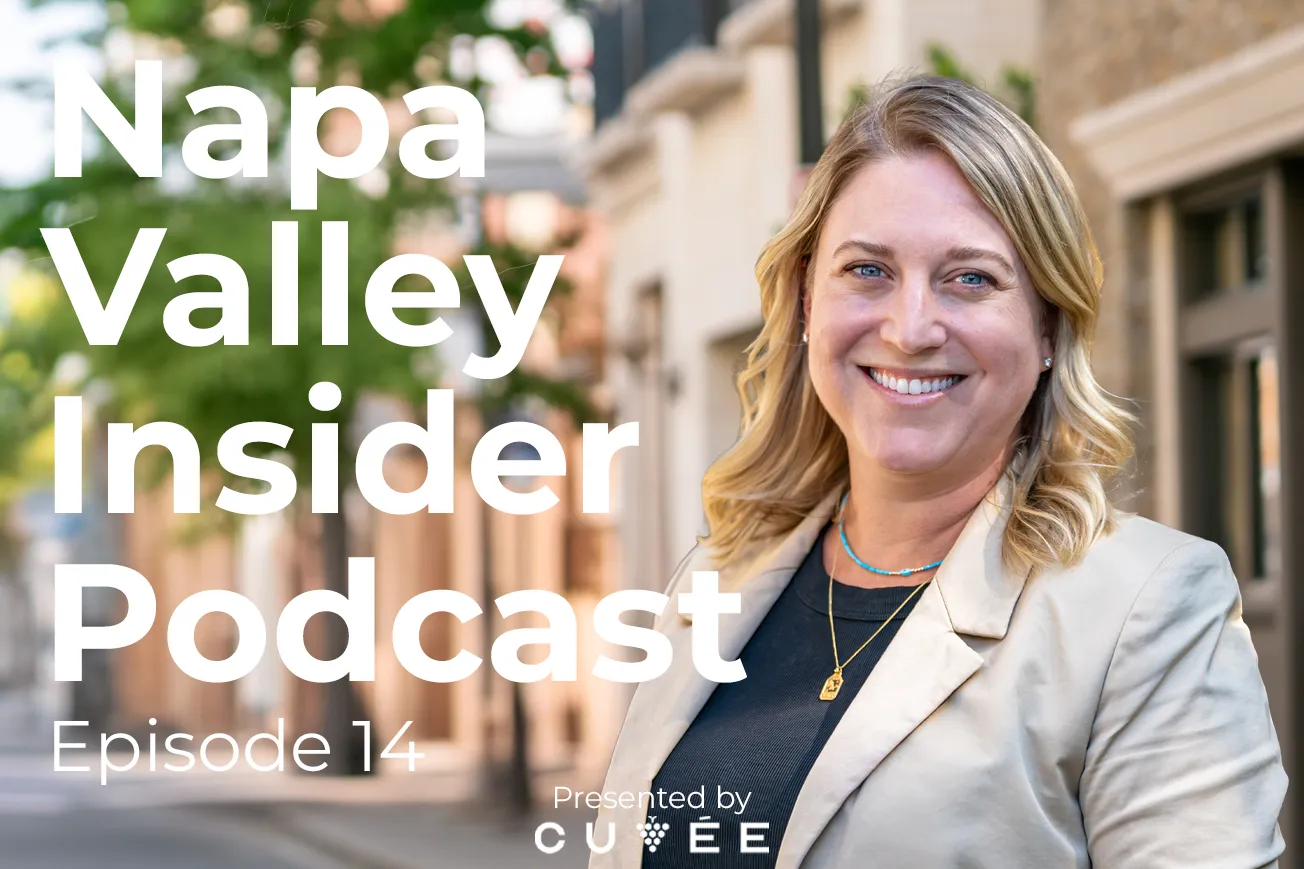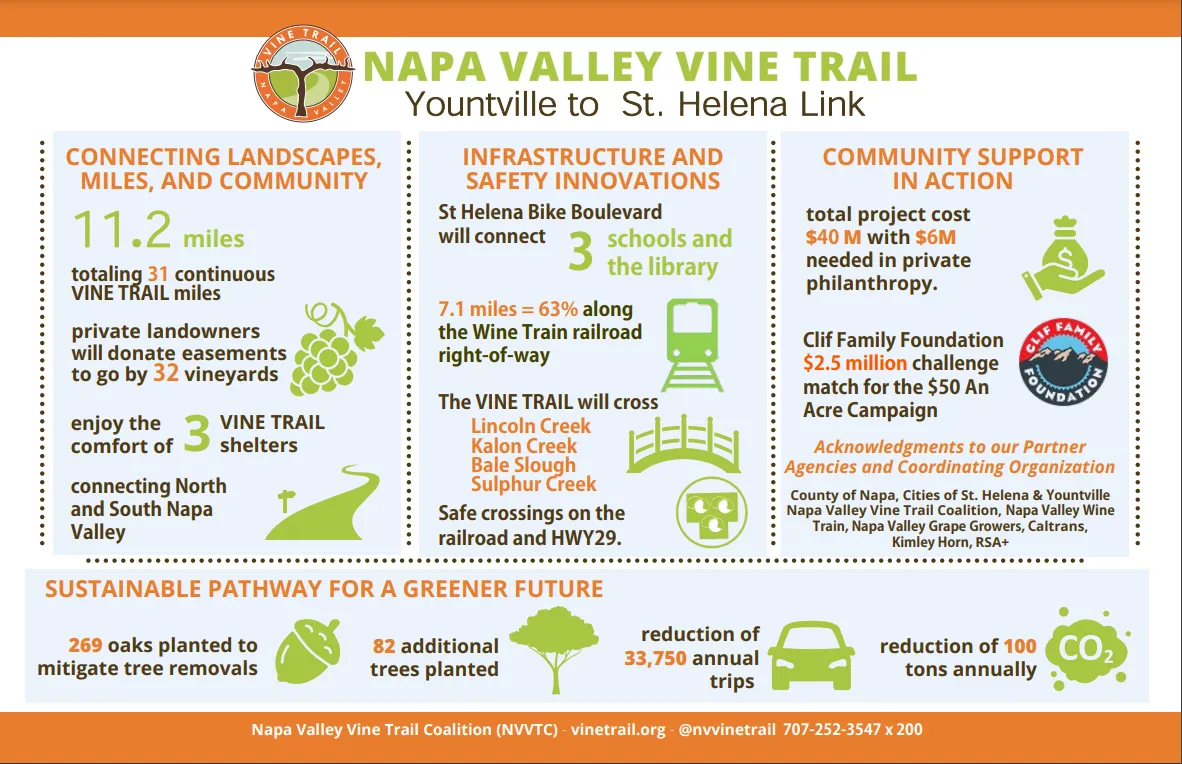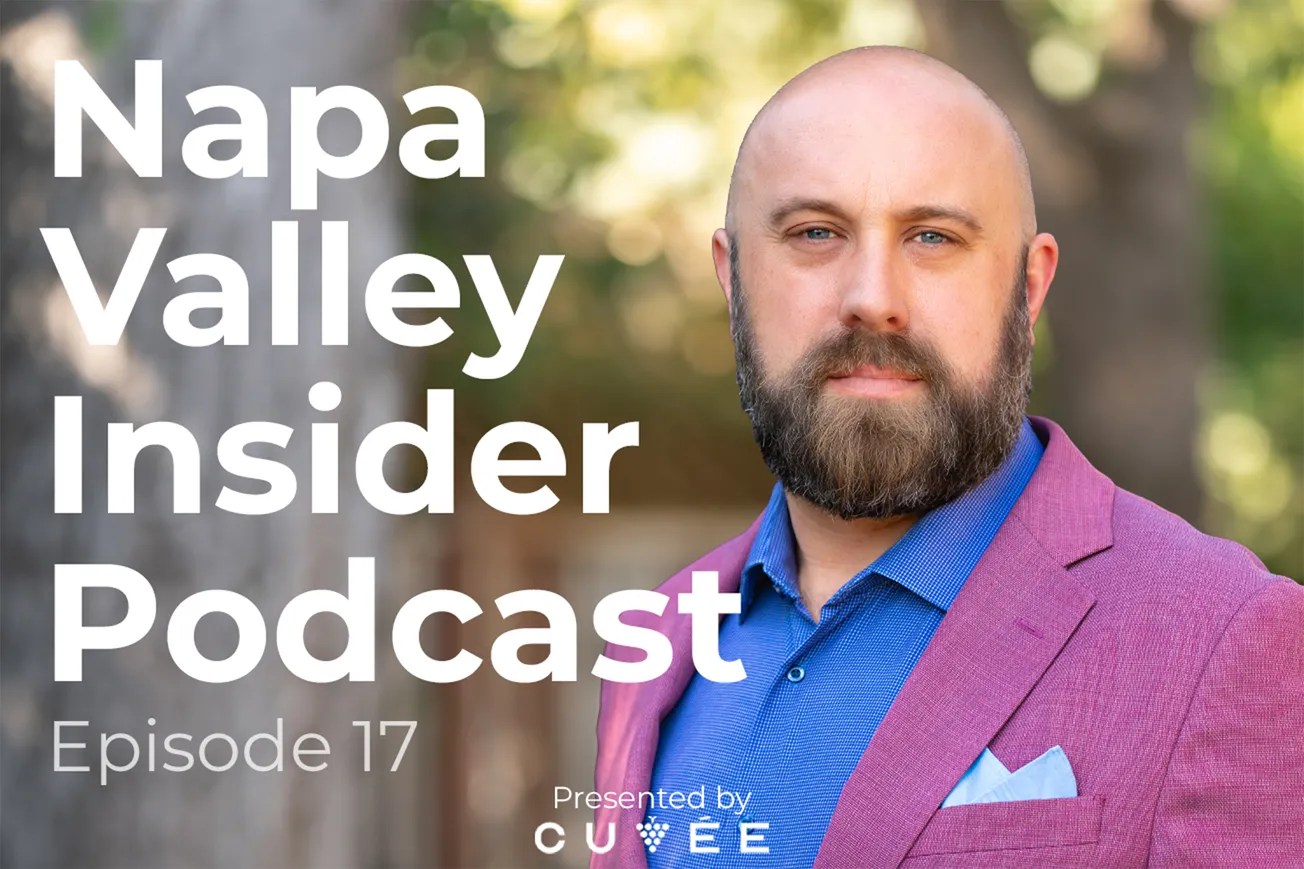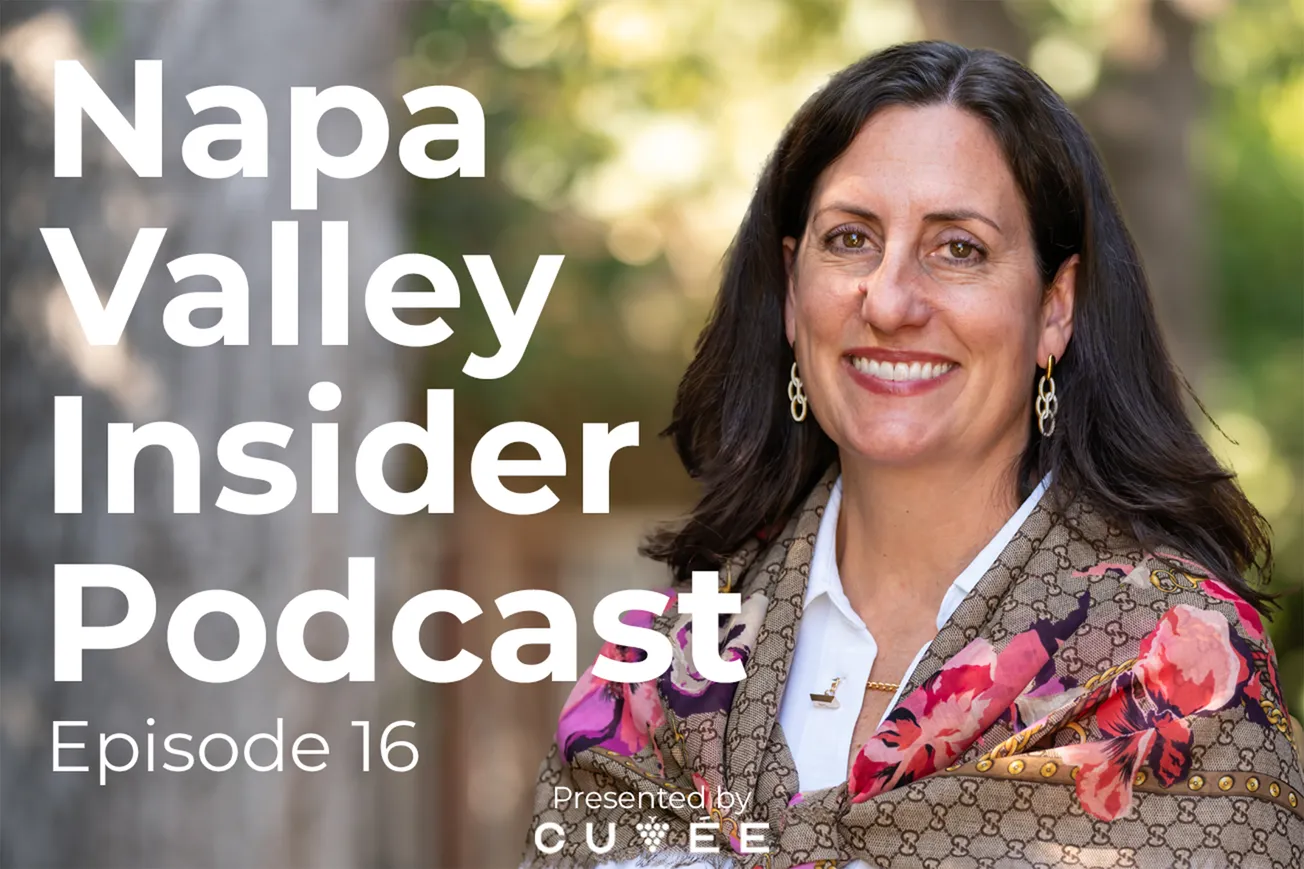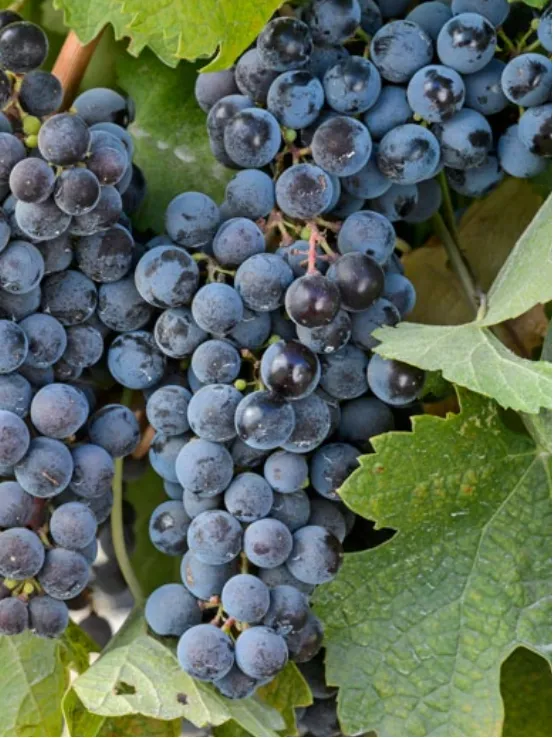Adventist Health St. Helena Hospital Foundation philanthropy manager leads food distribution program, shares outlook on helping others.
Since the beginning of the year, more than 500 families have gathered at the Calistoga Elementary School on the first Friday of every month, where they queue patiently to pick up essential groceries: bread, vegetables, rice, fruits and toiletries.
The food distribution initiative, fronted by the St. Helena Hospital Foundation’sMobile Health Clinic, has operated out of a van since last February and so far this year has aided close to 3,000 people in Calistoga alone and more than 5,000 across the valley.
As people arrive at the elementary campus, Fabio Maia, philanthropy manager for the foundation, welcomes each person, asks a few quick questions and gestures toward stacks of used vegetable boxes that will help families carry their items.
In Calistoga and the wider Napa Valley, he said, many affluent individuals may not fully understand the challenges faced by many members of the community.
“When I am asked what donations our programs require, I always stress that they are needed, but the most essential need is genuine care and compassion,” he explained.
About 125 families came to the distribution drive in Calistoga just last Friday, Maia said. The number of families coming has increased by 30 percent in the previous three months, he added. During the first event in Calistoga, food and toiletries ran out in less than an hour.
The mobile health clinic van is stationed at Calistoga Elementary School every firstFriday of the month. On the second Friday, it moves to St. Helena High School and on the third Friday, it relocates to St. Thomas Aquinas Catholic Church in Napa.
Before the food distribution initiative was launched, the hospital designed the mobile health program to serve seniors. Then, during the pandemic, the team pivoted to providing vaccines and has since expanded to food pantry-like services. The hospital partnered with Community Action of Napa Valley, the UpValley Family Centers and local school districts.
Once a student missionary on humanitarian trips, Maia, 51, spent nearly half his life dedicated to aiding those in need, traveling to places like Fiji, Kenya, the Amazon and Bangladesh. For 25 years, he assembled medical and dental teams that would service communities in those countries.
“I’ve never seen poverty hurt so much just by watching. I had to close my eyeswalking down the streets [of Bangladesh],” Maia reflected.
In all parts of the world, he explained, there are those at the top of society, followed by those who function within society, and then there are those on the fringes who are often marginalized.
“It’s about being there for them; it’s like, hey, we are neighbors; we support you,” Maia said.
Originally from Brazil, Maia has called the Valley his home for more than a decade.
His wife grew up in the area, so they eventually decided to move closer to family.
Devoting his life to community outreach, Maia has played pivotal roles in various initiatives: leading food distribution programs during the Glass Fires, overseeing the first rollout of the COVID-19 vaccine via the foundation’s mobile clinic– the first in the county to vaccinate the most vulnerable in Napa– and spearheading the Blue Zones project, a program that focuses on implementing community-based initiatives to promote healthier lifestyles, with an emphasis on factors such as diet, social connections, and physical activity.

Maia, who has volunteered in the Middle East and Central America, describes himself as a “bridge builder connecting people from diverse backgrounds,” focused on more than just providing practical aid to those in need.
“Yes, we provide food and vaccines, but the more we can connect to our community, the more we can be there for each other the stronger we will become,” Maia said. “As a community, we are as strong as our weakest links."
“When we sit down with one another, we start respecting each other, we see problems and solutions differently,” he added. “You will then find yourself trying to understand where everyone is coming from and how to support others wherever they are, and that is what our work here in the valley also represents.”
A universal way of life, said Maia, is supporting communities – it’s asking ourselves how we can help our neighbors.
The mobile health clinic van, and food distribution drive are stationed at Calistoga Elementary School on the first Friday of the month from 4 to 5:30 p.m. or until supplies last.


